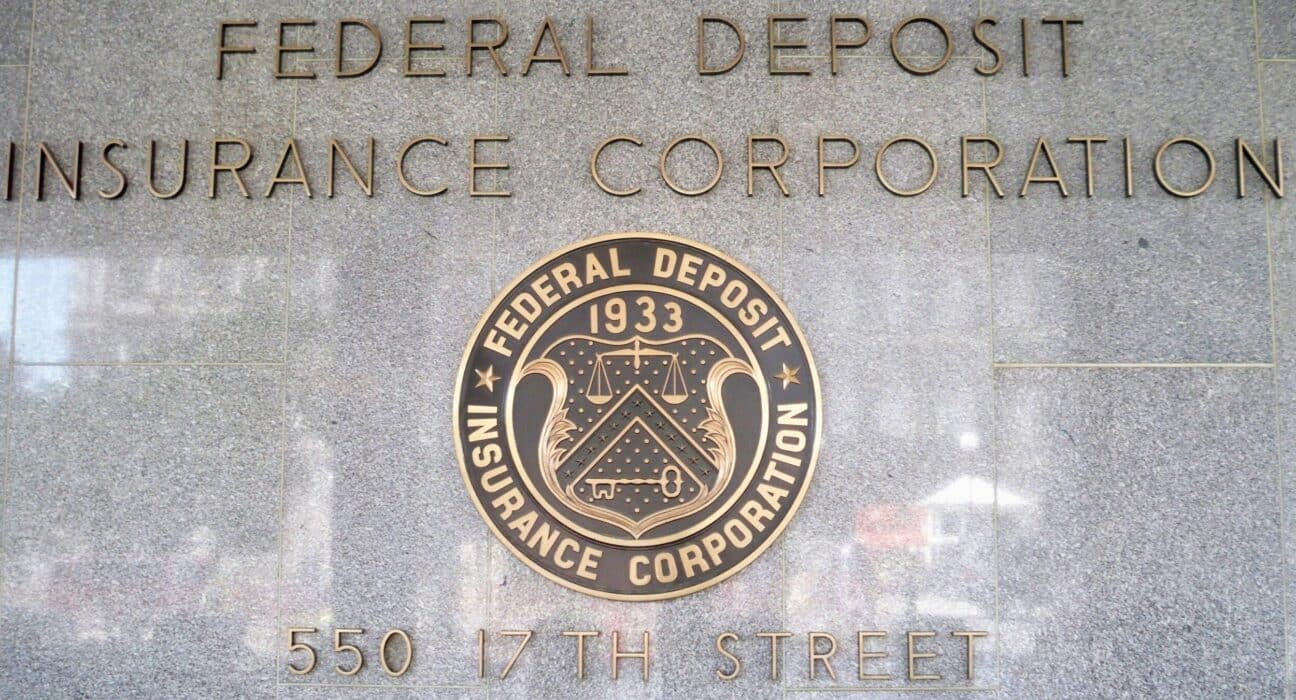FDIC Seeks Blockchain Expertise with New FinTech Counsel Role
The Federal Deposit Insurance Corporation (FDIC), a critical U.S. government agency providing bank insurance, is taking steps to embrace financial technology (FinTech) and blockchain innovation. The FDIC is hiring a FinTech Counsel, signaling its intent to deepen its understanding of emerging technologies such as blockchain, smart contracts, and digital payment systems.
This move underscores the agency’s commitment to fostering technological advancements within the financial services sector.
Details of the FinTech Counsel Role
The newly created position is part of the FDIC Legal Division’s Financial Technology and Innovation Group. According to the job posting, the FinTech Counsel will:
- Provide legal advice and assistance on issues related to blockchain settlement systems, smart contracts, and distributed ledger development.
- Explore the implications of utility settlement coins and other blockchain-related interbank payment applications.
- Support the agency’s efforts to promote financial innovation and inclusive banking services.
Utility Settlement Coins and Blockchain Payments
The job ad specifically mentions Utility Settlement Coins (USCs), a term historically associated with projects like Fnality, which focuses on blockchain-based interbank payments. This mention suggests a broader interest in the potential of blockchain for transforming clearing and settlement systems.
FDIC’s FinTech and Blockchain Journey
The FDIC has been steadily increasing its focus on FinTech and blockchain in recent years.
2018: Formation of FinTech Innovation Group
In 2018, the agency established a FinTech-focused innovation group to explore transformative technologies in the financial sector.
Congressional Statement on Technology Adoption
In a statement to Congress last year, the FDIC highlighted its commitment to:
- Expanding banking services to the unbanked and underbanked populations.
- Helping community banks compete in the modern financial marketplace.
- Monitoring developments in distributed ledger technology (blockchain), smart contracts, and digital assets.
Emerging Technology Steering Committee
The FDIC’s Emerging Technology Steering Committee, composed of senior leadership, oversees its efforts to integrate advanced technologies into the financial ecosystem.
Why Is the FDIC Hiring Blockchain Experts?
The FDIC’s hiring of a FinTech Counsel reflects several broader trends:
- Modernizing Financial Infrastructure: Blockchain offers the potential to streamline payment systems and enhance transaction efficiency.
- Enhancing Financial Inclusion: Leveraging digital assets and smart contracts can help bring banking services to underserved communities.
- Regulating Emerging Technologies: The FDIC recognizes the need to understand and regulate innovative technologies effectively.
Impact on the Financial Sector
The FDIC’s focus on blockchain and FinTech could have far-reaching implications:
1. Accelerating Blockchain Adoption
The agency’s engagement with blockchain technologies signals increased acceptance of distributed ledgers and their applications in financial markets.
2. Strengthening Financial Stability
By exploring blockchain’s potential for secure and transparent transactions, the FDIC aims to bolster the resilience of financial institutions.
3. Supporting Innovation in Banking
This move aligns with the FDIC’s mission to promote the adoption of cutting-edge technologies that can help community banks remain competitive in the evolving financial landscape.
Challenges Ahead
Despite its potential, blockchain adoption comes with challenges:
- Regulatory Complexity: Ensuring compliance while fostering innovation.
- Interoperability Issues: Integrating blockchain systems with existing financial infrastructure.
- Security Concerns: Addressing vulnerabilities in digital payment systems.
Conclusion
The FDIC’s decision to hire a FinTech Counsel with expertise in blockchain and digital payments highlights its commitment to modernizing the financial sector and fostering innovation. By exploring cutting-edge technologies like smart contracts, utility settlement coins, and distributed ledger systems, the agency is positioning itself to shape the future of banking and finance.
As the FDIC works to integrate these innovations, its efforts will likely influence regulatory approaches and drive the adoption of blockchain technology across the financial industry.
To stay informed on the latest developments in blockchain and FinTech, explore our article on latest news, where we delve into key trends shaping the future of finance.
Disclaimer: The information provided is not trading advice, Bitcoinworld.co.in holds no liability for any investments made based on the information provided on this page. We strongly recommend independent research and/or consultation with a qualified professional before making any investment decisions.




